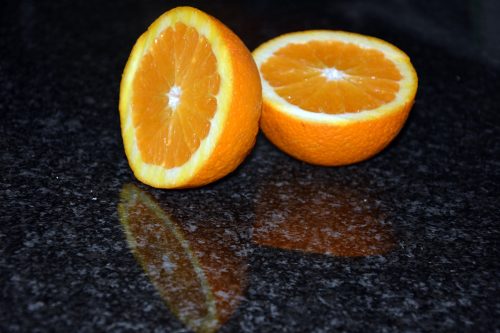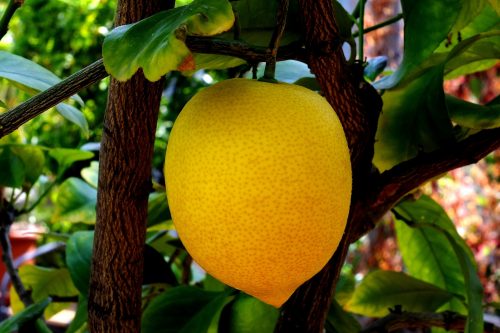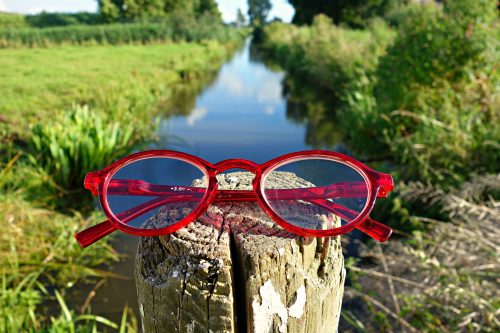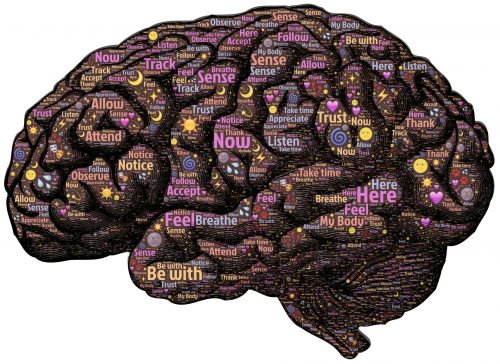
In my last article entitled "Find out the benefits of good nutrition"we saw in a general way the benefits of a good nutrition: it helps us to preserve our youth, health and enhances our creativity.
In this post, after looking into different studies related to Vitamin C and having analysed its beneficial properties, which I have experienced and consider to be applicable to everyone.
In this article I only want to state and share the advantages of this nutrient, which we can find through our diet or as a food supplement. Only physicians or nutrition experts are qualified to decide how much each one of us needs according to our state of health and the kind of activity we practise.
In my case, I have always used Vitamin C as a supplement throughout my life and have found it extremely beneficial. That is the reason for sharing my own experiences and thoughts with you through this article.
First things first, and going straight to the point, we can quickly go through some general features related to this nutrient.

What is Vitamin C?
Vitamin C or L-ascorbic acid is a chemical-compound and is an essential nutrient for humans that can be found in certain foods and can also be taken as a supplement in a water-soluble vitamin complex, which is easily absorbed. Exposure to light, oxygen or heat can cause oxidative damage. The water-soluble vitamin is absorbed in our intestines, passes directly to the blood, and is carried to the tissues and is easily eliminated from the body via the urine.
Our body goes through different metabolic reactions in order to keep us healthy and help our immune system to fight off any kind of attack such as colds and viruses. It plays an important role when it comes to synthesising and producing hormones and neurotransmitters, as co-factors (co-enzymes) for enzymatic reactions.

Have we always received our intake through food?
Research has been carried out on how our ancestors, millions of years ago, had the capacity to produce and synthesis it since it was their bodies that produced it and they did not require any food to provide it or serve as a supplement. However, we have lost that feature through evolution and our bodies can no longer produce its own Vitamin C, although this has not caused any major issues to our fellow humans since they were able to obtain it by eating fruits that are rich in Vitamin C as well as animal entrails. It has only recently been discovered that over the past centuries, there was a lack of Vitamin C or a very poor diet, which can cause an illness known as scurvy.

Which is this vitamin’s most relevant trait?
It is a powerful antioxidant that protects us from free radicals, and being exposed to adverse effects by environmental contamination that contribute to premature ageing and oxidative stress. How can we benefit from it? Its proven effectiveness against free radicals, cellular oxidative damage and counteracting any aggressive agents that may attack and deteriorate our immune system, known as oxidative stress, has yet to be surpassed.
What are we to infer from oxidative stress?
It may trigger a wide range of illnesses. Therefore, Vitamin C becomes our best ally when it comes to fighting any health conditions and illnesses, such as high blood pressure, by relaxing the artery wall from hardening and becoming clogged; decreasing cholesterol and LDL triglyceride levels and avoiding the chances of suffering cardiovascular events. In addition, it can help prevent further growth of cancerous tumours.

From a practical point of view, how can pianists benefit from taking Vitamin C?
Playing the piano requires long sessions to achieve technique and improve our performance or simply rehearsing our repertoire. This can cause minor traumas, muscular swelling, tendinitis and other joint deteriorations. Well, it just so happens that Vitamin C is essential to help the connective tissues, cartilage and bones keep in good shape. It is the most abundant protein built in our bodies and the major component of connective tissue. Therefore, it is extremely important when it comes to healing any damaged tissue caused by playing the piano for so many hours and also helps accelerate the proliferation of fibroblasts to concentrate on repairing the damaged tissues.
On the other hand, what is essential for any pianist?
Visual sharpness, together with a clear reading of the musical score, among other features, is directly related to our visual acuity. We can always rely on finding a solution provided by an ophthalmologist, although that would be my last resource since I prefer to follow a healthy diet and preventing any deterioration, as is the case of cataracts. Vitamin C can help prevent cataracts, which is a macular deterioration that develops into the clouding of the eye's natural lens that lies behind the iris and the pupil; as a result, it can become the cause of vision loss and even blindness. We can benefit from taking Vitamin C, for other reasons; it increases our blood circulation and helps antioxidant cells to fulfil their purpose by carrying the required nutrients.

We also need to take care of our ear pitch
Is there any pianist out there that truly believes that the ear is not important when it comes to playing the piano? The intake of Vitamin C it is highly recommended in order to prevent ear infections and other disorders related to the ear.
Could there be anything better than playing the piano or practising any other activity and/or hobby, rather than going through a common cold and suffering its symptoms?
After much research, it is a proven fact that Vitamin C can help our immune system to fight off bacteria and viruses; it can also help in getting over colds and making symptoms milder. How is this possible? Among many other traits, Vitamin C enhances the levels of interferon, created by our white corpuscles or white blood cells, and can increase the immune access to any pathogens attacking our system.

From a very early age to my youth, I suffered many colds and it was not unusual to have flu or be attacked by viral claws because I had a weak immune system. This brought on much discomfort and other related health issues such as tonsillitis and high temperatures among other symptoms. It was not only about spending so much time in bed, but the following weeks trying to fully recover from each cold. Yet, there was something worse than that; I was very aware of the fact that once I had recovered I would be facing another five or six months of the same old story, colds and flu. Then came vaccinations and other preventative treatments, which worked out to be non-effective. So, one day I placed my bet on Vitamin C and much to my delight, for which I am very grateful, I have managed to keep all those colds away. It was a few years ago that, just by chance, I relaxed and lowered my guard with the amount of Vitamin C I was taking at the time. Obviously, back came all bacteria and viruses and they thrived on my weakness for a period of time.

Allergy or Hay Fever are close relatives to colds, they share common symptoms: sneezing, irritated and watery eyes, runny nose, blocked, stuffy nose, itching and 'post-nasal drip' can become very entertaining when playing the piano.
Although most of us know any allergic symptoms can be dealt with by taking an antihistamine compound. But, why not let our bodies fight off. In a natural way, the discomfort that Hay Fever causes? Vitamin C has already proven its effectiveness when it comes to decreasing histamine levels, which is to blame for all the grim side effects.
And, last but not least, maybe we should ask ourselves “To what extent can stress become our enemy and prevent us from being able to focus when learning or just composing a piece?
There is a vast amount of studies that have proven that Vitamin C plays an important role when it comes to reducing stress levels and has a direct effect on the adrenal glands, which lower the presence of cortisol in our blood stream. Our bodies synthesise the production of cortisol, a hormone that regulates a wide range of processes, especially when it comes to stressful moments.On the other hand, back in 1960, in The USA, Doctor Kubala and Doctor Katz gave evidence, after monitoring a group of people throughout a clinical research, on the benefits that Vitamin C provided when carrying out any kind of intellectual activity and enhancing concentration.

Which foods carry the highest levels of Vitamin C?
It can be found in oranges, lemons, kiwis, mandarins, tomatoes, carrots, radishes, broccoli, bell peppers, strawberries, cauliflower and Brussels sprouts.

How much Vitamin C is recommended on a daily basis?
There is a wide range of opinions regarding the amount to be taken. It is up to a physician to prescribe the amount and it also depends on the source it is based upon. In my case, I had to think about the pros and cons that keeping a high level of Vitamin C implied, and decided to take up to 10 grams per day throughout different meals.
I hope you have found this article useful and I will continue sharing further information on how to benefit from our diets, based on reliable facts, when it comes to playing the piano.
I will be sending you further information on how exciting the relationship between playing the piano and nutrition can become, from different points of view. To read further information you only need to subscribe to my Site.
Please remember I am always available on my Twitter channel and update it on a daily basis.

How to improve our creativity through nutrition and sport.
My experience in an eBook
Follow @adholife
Comments are closed.


